ENHANCED CARE MANAGEMENT
What is Enhanced Care Management?
Enhanced Care Management (or ECM) is a Medi-Cal managed care benefit that addresses the clinical and non-clinical needs of high-need, high-cost individuals through the coordination of services and comprehensive care management.
Enhanced Care Management benefits give Medi-Cal members with complex needs the support that will help them stay healthy and thrive.
These benefits are designed to support the following nine Populations of Focus.
Populations of Focus
Individuals Experiencing Homelessness
Children, youth, and families with members under 21 years old experiencing homelessness
Individuals At Risk for Avoidable Hospital or Emergency Department Utilization
Adultswith five or more avoidable ED visits or three or more avoidable unplanned hospital or nursing facility stays in the past year
Children and youth with 3 or more avoidable ED visits or 2 or more avoidable unplanned hospital or nursing facility stays in the past year
Individuals with Serious Mental Health and/or Substance Use Disorder Needs
Adultswith significant mental health or substance use disorders, affected by at least one complex social factor* and one or more of the following: at high risk or institutionalization, overdose, or suicide; rely mainly on crisis services, EDs, urgent care, or inpatient stays; or have had 2+ ED visits or hospitalizations for mental health or substance use disorders in the last 12 months
Children and youth experiencing significant challenges with mental health conditions or substance use disorders
Individuals Transitioning from Incarceration
Children and youth released from youth correctional facilities in the past year
Adults in the Community at Risk for Long-Term Care Institutionalization
*Examples of complex social factors include, but are not limited to, lack of access to food; lack of access to stable housing; difficulty accessing transportation; four or more ACEs; recent contacts with law enforcement; or crisis intervention services related to mental health and/or substance use symptoms.
Adult Nursing Facility Residents Transitioning to the Community
Children and Youth Enrolled in California Children’s Services (CCS) or CCS Whole Child Model (WCM) with Additional Needs
Children and youth in CCS or CCS WCM who are affected by at least 1 complex social factor*
*Examples of complex social factors include, but are not limited to, lack of access to food; lack of access to stable housing; difficulty accessing transportation; four or more ACEs; recent contacts with law enforcement; or crisis intervention services related to mental health and/or substance use symptoms.
Children and Youth Involved in Child Welfare
Birth Equity Population of Focus
Core Services of Enhanced Care Management
Outreach & Engagement
Contact and engage the member in their care.
Comprehensive Assessment and Care Management Plan
Complete a comprehensive assessment with the member and work with them to develop a care plan to manage and guide their care and meet their goals.
Enhanced Coordination of Care
Coordinate care and information across all of the member’s providers and implement the care plan.
Coordination of and Referral to Community and Social Support Services
Connect the member to community and social services.
Member and Family Supports
Educate the member and their personal support system about their health issues and options to improve treatment adherence.
Health Promotion
Provide tools and support that will help the member better monitor and manage their health.
Comprehensive Transitional Care
Help the member safely and easily transition in and out of the hospital or other treatment facilities.
Best Practices & Resources
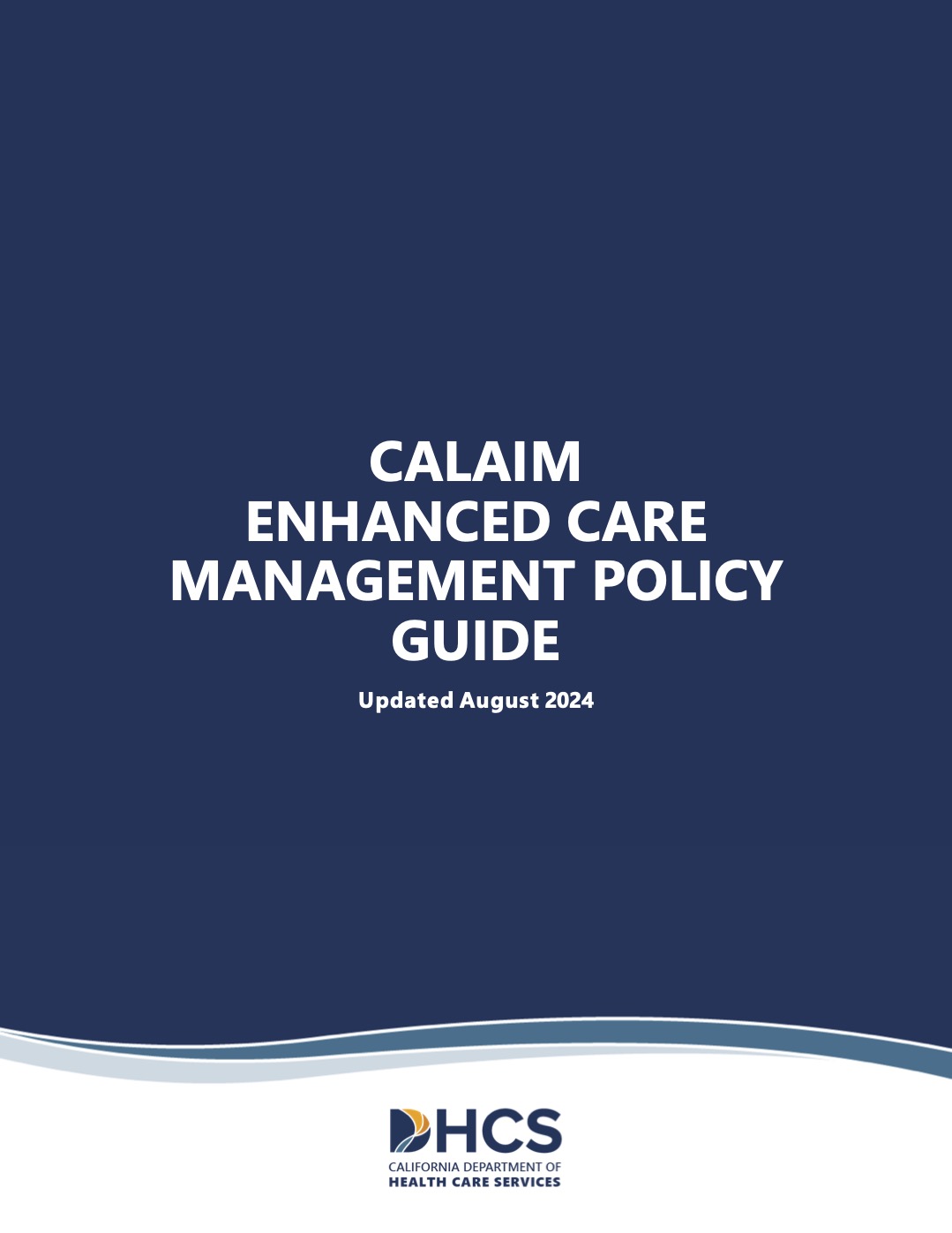
Calaim Enhanced Care Management Policy Guide
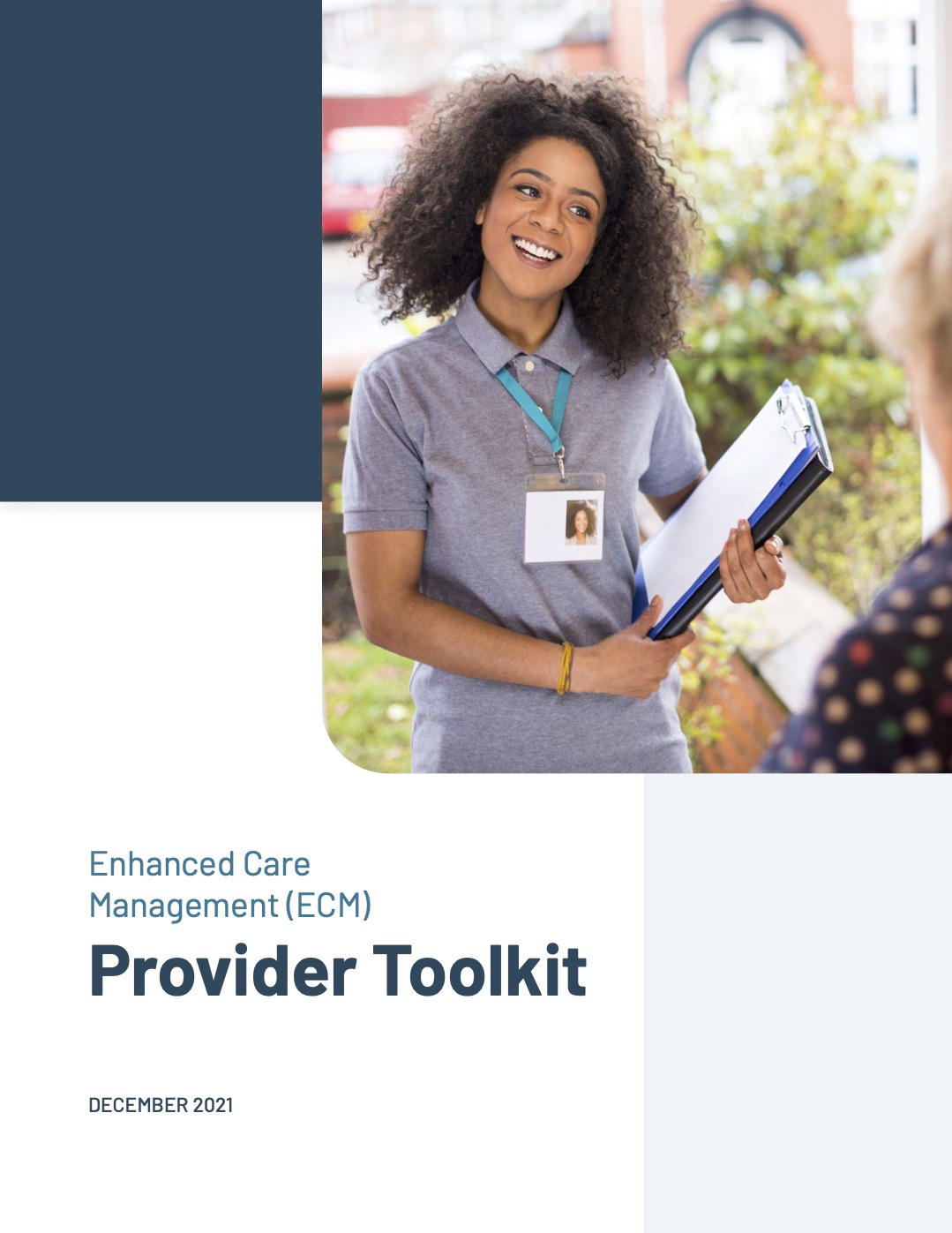
Enhanced Care Management (ECM): Provider Toolkit
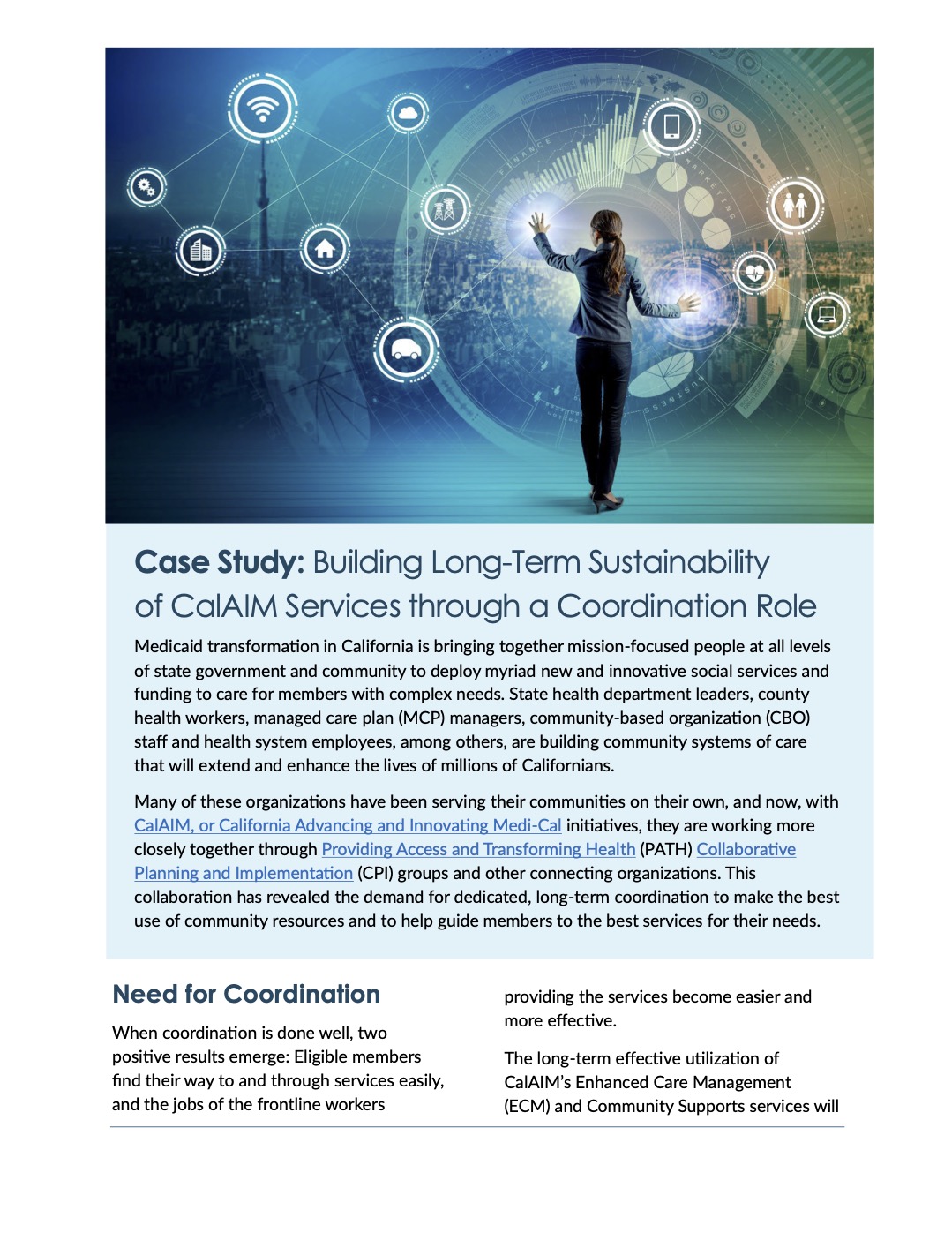
Case Study: Building Long-Term Sustainability of CalAIM Services Through a Coordination Role
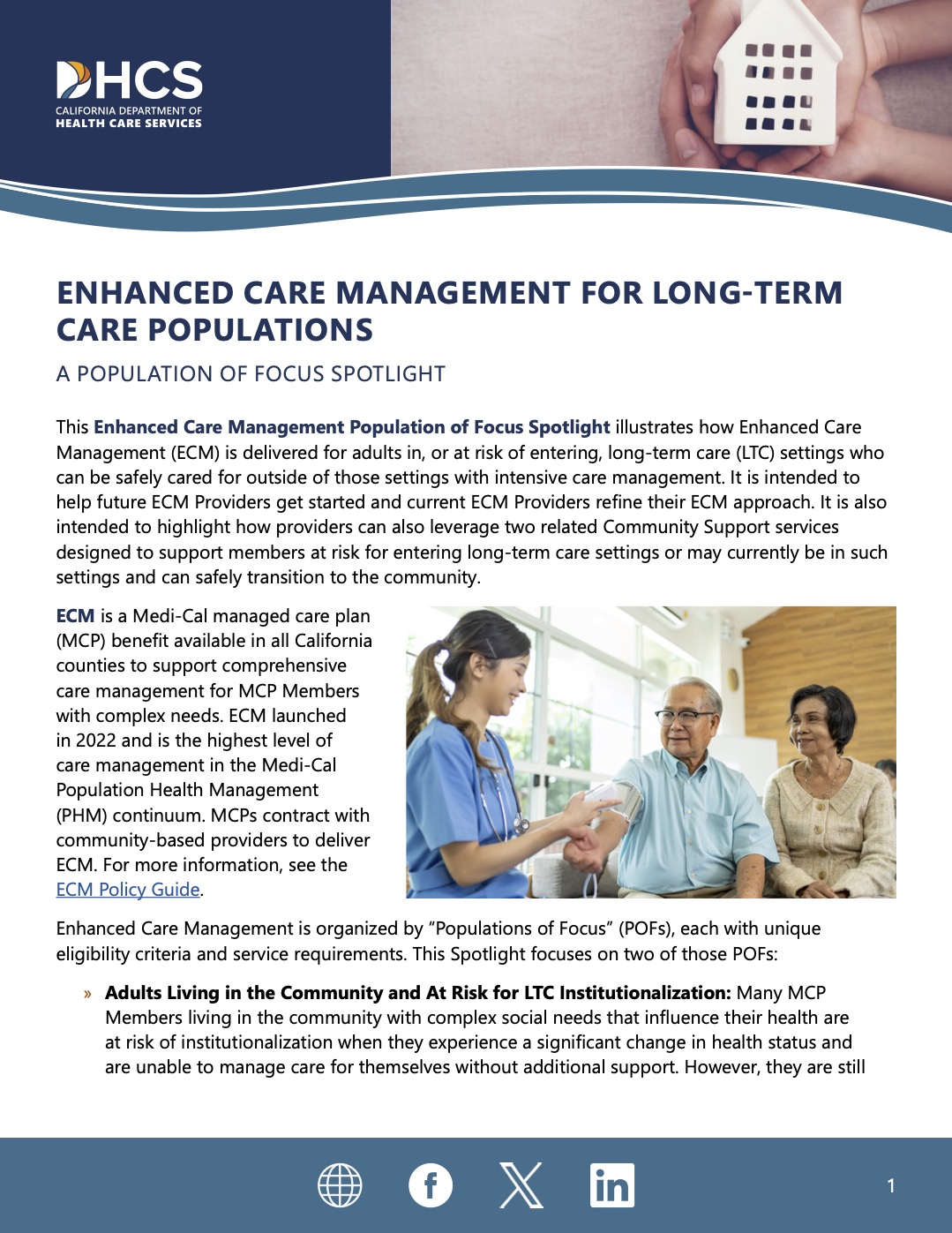
Enhanced Care Management for Long-Term Care Populations: A Population of Focus Spotlight

Enhanced Care Management for Individuals Experiencing Homelessness: A Population of Focus Spotlight
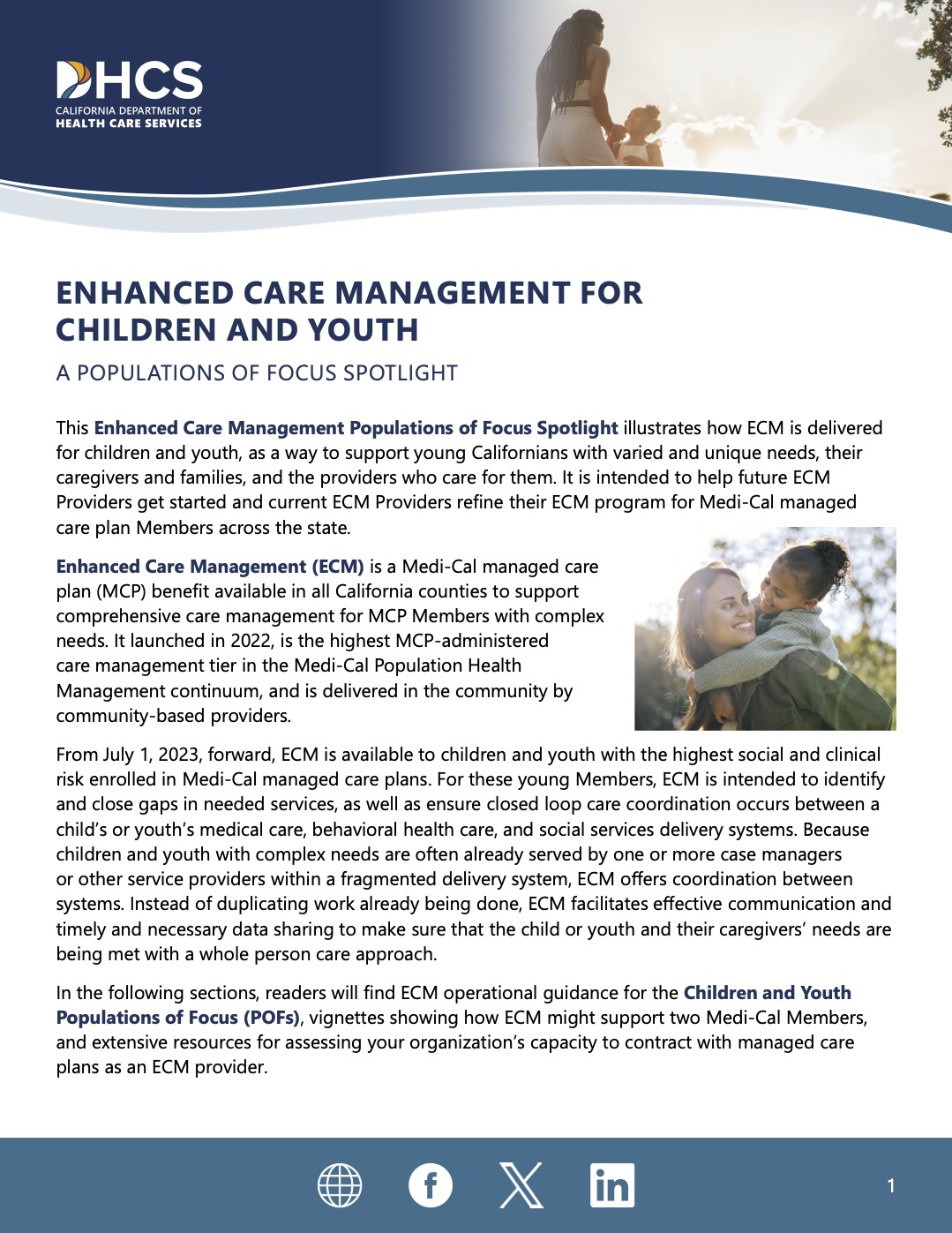
Enhanced Care Management for Children and Youth A Populations of Focus Spotlight
Training & Education

Anthem Blue Cross: Provider Training Academy

CalAIM Provider Training and Webinars

